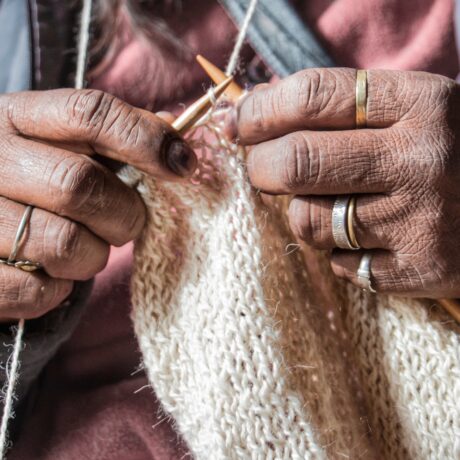Gulu Ginnery, Uganda
When Charles Oboth was first asked to reopen the derelict cotton ginnery in Gulu, Northern Uganda, his response was a simple and strong ‘no’. The compound was overgrown with grass taller than him; the ginning machines were fifty years old and dilapidated. Gulu had been at the centre of a war for two decades and for Charles and his fellow Ugandan colleagues it was considered a no-mans-land. But the owner was persuasive and visionary, and eventually Charles gave in.
That was 2009, and just five years later the ginnery is unrecognizable. With Charles as General Manager, it has grown rapidly to be one of the largest ginners in Uganda, employing 350 people at peak season and buying conventional and organic cotton from 40,000 farmers. Many of these cotton farmers returned to their small farms from Internally Displaced People’s camps in 2008 and have had to rebuild their homes and lives from scratch. Collaborating with other ginneries in the North, the Gulu ginnery has supported the farmers with vital tools, access to a market, and free training in organic practices that increase their yields and sustain the health of their farms. 2,000 of the farmers are Organic and Fair Trade certified, so they receive an additional income per kg above the local price. Meanwhile ginnery employees are paid a fair wage and provided with free meals, uniform, access to healthcare and support to form workers groups. The ginnery has reintroduced entrepreneurialism and economic opportunity in a setting that saw most of the local economy wiped out by the war.
Challenges persist of course – Gulu is not an easy place to do business. The most basic infrastructure is still lacking: roads can get washed away in the rainy season, electricity is forever patchy, and it can take a full day for an engineer to come from Kampala to fix the generator if it breaks.
 But the Gulu ginnery is an example of the power of the fashion industry when it is done right. Fair trade cotton ginned in Gulu travels onwards to Japan, where it becomes t-shirts and dresses sold to conscious consumers. In order to do more good, the ginnery needs new Fair Trade buyers. Natalie Grillon, an employee at the ginnery for the last two seasons, has established an enterprise called ‘JUST’ that supports buyers and designers to source ethically made materials, including cotton from Gulu. That means more demand for the ginnery to meet and so more support, training and money for farmers.
But the Gulu ginnery is an example of the power of the fashion industry when it is done right. Fair trade cotton ginned in Gulu travels onwards to Japan, where it becomes t-shirts and dresses sold to conscious consumers. In order to do more good, the ginnery needs new Fair Trade buyers. Natalie Grillon, an employee at the ginnery for the last two seasons, has established an enterprise called ‘JUST’ that supports buyers and designers to source ethically made materials, including cotton from Gulu. That means more demand for the ginnery to meet and so more support, training and money for farmers.
Charles and his Ugandan colleagues have built the ginnery’s success with sweat and tears. They sacrifice evenings and weekends throughout the season; they even offload cotton on Christmas Day. Nobody says it is easy. But up in the blossoming cotton fields of Northern Uganda, we can start to see what a Fashion Revolution really looks like.
By Tamsin Chislett – proud to be a previous employee of Gulu’s cotton ginnery.







